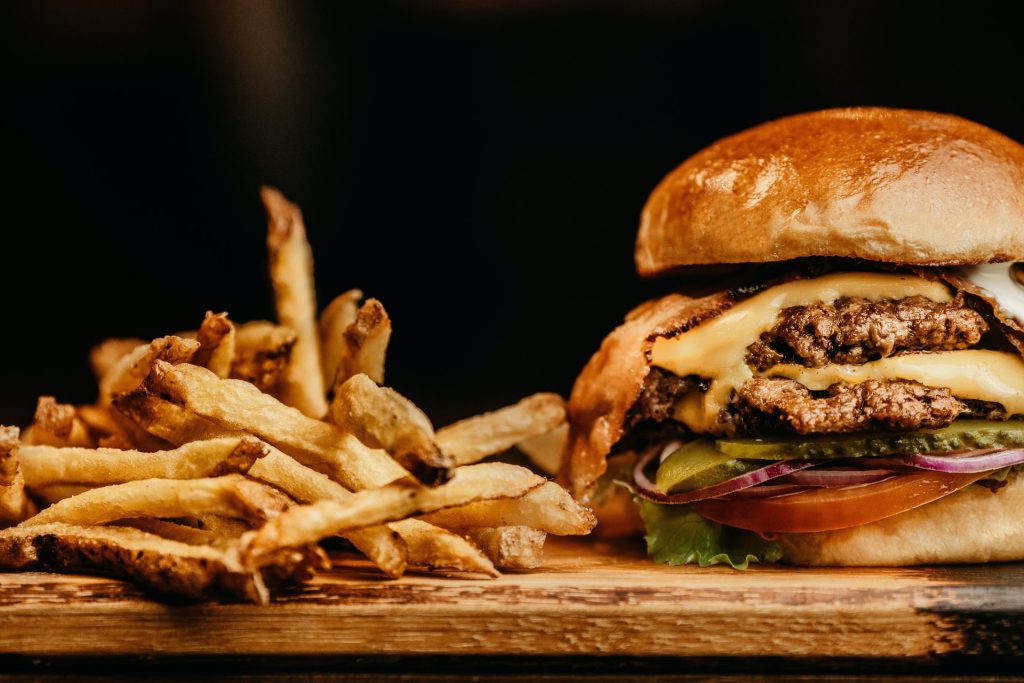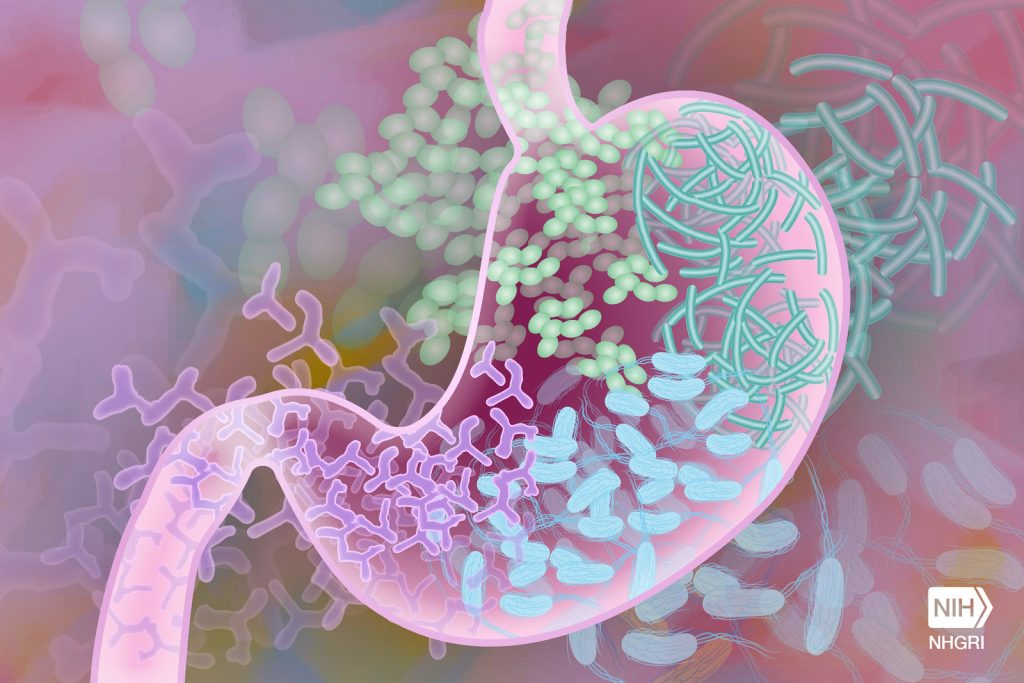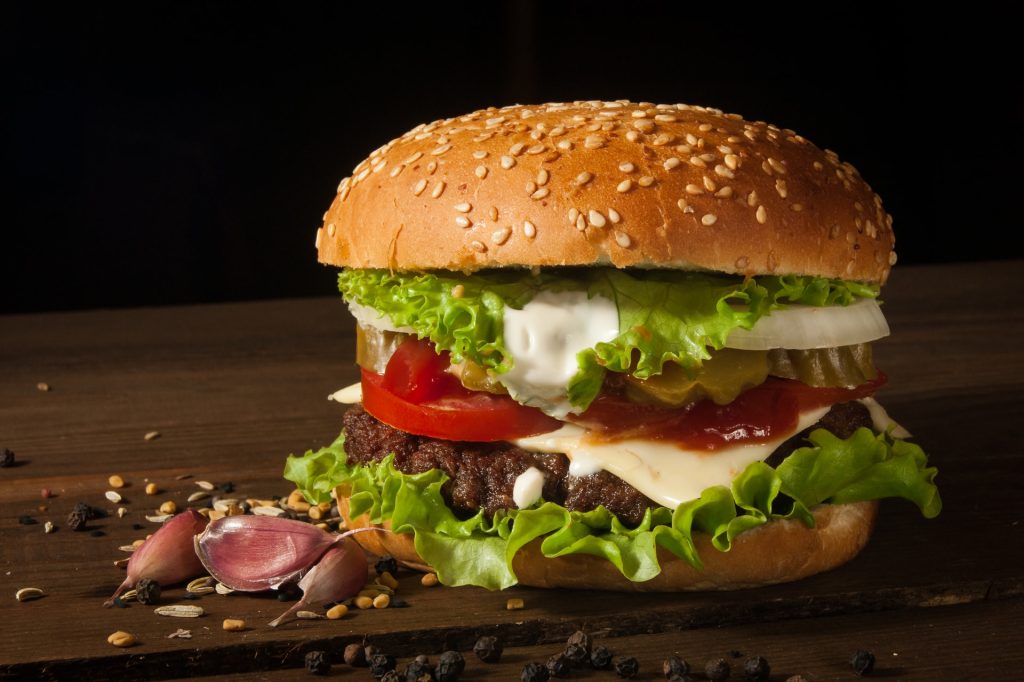Why Does Obesity Takes Away the Pleasure of Eating?

The pleasure we get from eating junk food — the dopamine rush from crunching down on salty, greasy chips and a luscious burger — is often blamed as the cause of overeating and rising obesity rates in our society. But a new study suggests that pleasure in eating, even eating junk food, is key for maintaining a healthy weight in a society that abounds with cheap, high-fat food.
Paradoxically, anecdotal evidence suggests that people with obesity may take less pleasure in eating than those of normal weight. Brain scans of obese individuals show reduced activity in pleasure-related brain regions when presented with food, a pattern also observed in animal studies.
Now, University of California, Berkeley, researchers have identified a possible underlying cause of this phenomenon — a decline in neurotensin, a brain peptide that interacts with the dopamine network — and a potential strategy to restore pleasure in eating in a way that helps reduce overall consumption.
The study, published in Nature, reveals an unsuspected brain mechanism that explains why a chronic high-fat diet can reduce the desire for high-fat, sugary foods, even when these foods remain easily accessible. The researchers propose that this lack of desire in obese individuals is due to a loss of pleasure in eating caused by long-term consumption of high-calorie foods. Losing this pleasure may actually contribute to the progression of obesity.
“A natural inclination toward junk food is not inherently bad — but losing it could further exacerbate obesity,” said Stephan Lammel, a UC Berkeley professor in the Department of Neuroscience and a member of the Helen Wills Neuroscience Institute.
The researchers found that this effect is driven by a reduction in neurotensin in a specific brain region that connects to the dopamine network. Importantly, they demonstrate that restoring neurotensin levels — either through dietary changes or genetic manipulations that enhance neurotensin production — can reinstate the pleasure in eating and promote weight loss.
“A high-fat diet changes the brain, leading to lower neurotensin levels, which in turn alters how we eat and respond to these foods,” Lammel said. “We found a way to restore the desire for high-calorie foods, which may actually help with weight management.”
While findings in mice don’t always translate directly to humans, this discovery could open new avenues for addressing obesity by restoring food-related pleasure and breaking unhealthy eating patterns.
“Imagine eating an amazing dessert at a great restaurant in Paris — you experience a burst of dopamine and happiness,” said Neta Gazit Shimoni, a UC Berkeley postdoctoral fellow. “We found that this same feeling occurs in mice on a normal diet, but is missing in those on a high-fat diet. They may keep eating out of habit or boredom, rather than genuine enjoyment.”
Gazit Shimoni and former UC Berkeley graduate student Amanda Tose are co-first authors, and Lammel is senior author of the study, which will be published March 26 in the journal Nature.
Solving a long-standing puzzle in obesity research
For decades, doctors and researchers have struggled to understand and treat obesity, as countless fad diets and eating regimens have failed to produce long-term results. The recent success of GLP-1 agonists like Ozempic, which curb appetite by increasing feelings of fullness, stands out among many failed approaches.
Lammel studies brain circuits, particularly the dopamine network, which plays a crucial role in reward and motivation. Dopamine is often associated with pleasure, reinforcing our desire to seek rewarding experiences, such as consuming high-calorie foods.
While raising mice on a high-fat diet, Gazit Shimoni noticed a striking paradox: While in their home cages, these mice strongly preferred high-fat chow, which contained 60% fat, over normal chow with only 4% fat, leading them to gain excessive weight. However, when they were taken out of their home cages and given free access to high-calorie treats such as butter, peanut butter, jelly or chocolate, they showed much less desire to indulge than normal-diet mice, which immediately ate everything they were offered.
“If you give a normal, regular-diet mouse the chance, they will immediately eat these foods,” Gazit Shimoni said. “We only see this paradoxical attenuation of feeding motivation happening in mice on a high-fat diet.”
She discovered that this effect had been reported in past studies, but no one had followed up to find out why, and how the effect connects to the obesity phenotype observed in these mice.
Restoring neurotensin reverses obesity-related brain changes
To investigate this phenomenon, Lammel and his team used optogenetics, a technique that allows scientists to control brain circuits with light. They found that in normal-diet mice, stimulating a brain circuit that connects to the dopamine network increased their desire to eat high-calorie foods, but in obese mice, the same stimulation had no effect, suggesting that something must have changed.
The reason, they discovered, was that neurotensin was reduced so much in obese mice that it prevented dopamine from triggering the usual pleasure response to high-calorie foods.
“Neurotensin is this missing link,” Lammel said. “Normally, it enhances dopamine activity to drive reward and motivation. But in high-fat diet mice, neurotensin is downregulated, and they lose the strong desire to consume high-calorie foods — even when easily available.”
The researchers then tested ways to restore neurotensin levels. When obese mice were switched back to a normal diet for two weeks, their neurotensin levels returned to normal, dopamine function was restored, and they regained interest in high-calorie foods.
When neurotensin levels were artificially restored using a genetic approach, the mice not only lost weight, but also showed reduced anxiety and improved mobility. Their feeding behaviour also normalised, with increased motivation for high-calorie foods and a simultaneous reduction of their total food consumption in their home cages.
“Bringing back neurotensin seems to be very, very critical for preventing the loss of desire to consume high-calorie foods,” Lammel said. “It doesn’t make you immune to getting obese again, but it would help to control eating behaviour, to bring it back to normal.”
Toward more precise treatments for obesity
Although directly administering neurotensin could theoretically restore feeding motivation in obese individuals, neurotensin acts on many brain areas, raising the risk of unwanted side effects. To overcome this, the researchers used gene sequencing, a technique that allowed them to identify specific genes and molecular pathways that regulate neurotensin function in obese mice.
This discovery provides crucial molecular targets for future obesity treatments, paving the way for more precise therapies that could selectively enhance neurotensin function without broad systemic effects.
“We now have the full genetic profile of these neurons and how they change with high-fat diets,” Lammel said. “The next step is to explore pathways upstream and downstream of neurotensin to find precise therapeutic targets.”
Lammel and Gazit Shimoni plan to expand their research to explore neurotensin’s role beyond obesity, investigating its involvement in diabetes and eating disorders.
“The bigger question is whether these systems interact across different conditions,” Gazit Shimoni said. “How does starvation affect dopamine circuits? What happens in eating disorders? These are the questions we’re looking at next.”






